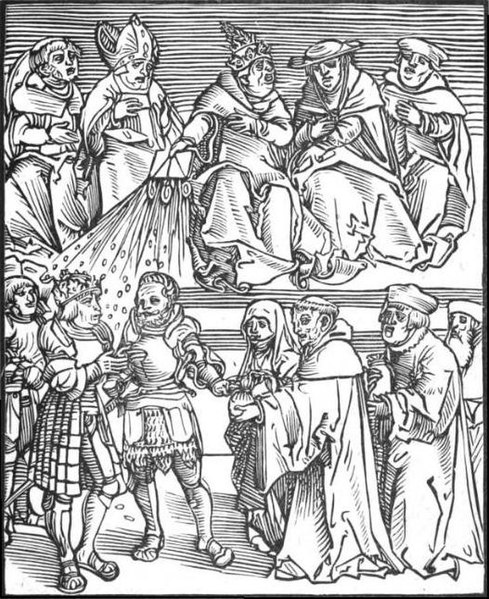Secularism is the principle of seeking to conduct human affairs based on naturalistic considerations, uninvolved with religion.
The British writer George Holyoake (1817–1906) employed the term "secularism" in 1851.
Separation of church and state
The separation of church and state is a philosophical and jurisprudential concept for defining political distance in the relationship between religious organizations and the state. Conceptually, the term refers to the creation of a secular state and to disestablishment, the changing of an existing, formal relationship between the church and the state. The concept originated among early Baptists in America. In 1644, Roger Williams, a puritan minister and founder of the state of Rhode Island and The First Baptist Church in America, was the first public official to call for "a wall or hedge of separation" between "the wilderness of the world" and "the garden of the church." Although the concept is older, the exact phrase "separation of church and state" is derived from "wall of separation between Church & State," a term coined by Thomas Jefferson in his 1802 letter to members of the Danbury Baptist association in the state of Connecticut. The concept was promoted by Enlightenment philosophers such as John Locke.

St. Augustine by Carlo Crivelli
Antichristus, a woodcut by Lucas Cranach the Elder of the pope using the temporal power to grant authority to a generously contributing ruler
John Locke, English political philosopher argued for individual conscience, free from state control.
Thomas Jefferson, the third President of the United States, whose letter to the Danbury Baptists Association is often quoted in debates regarding the separation of church and state





